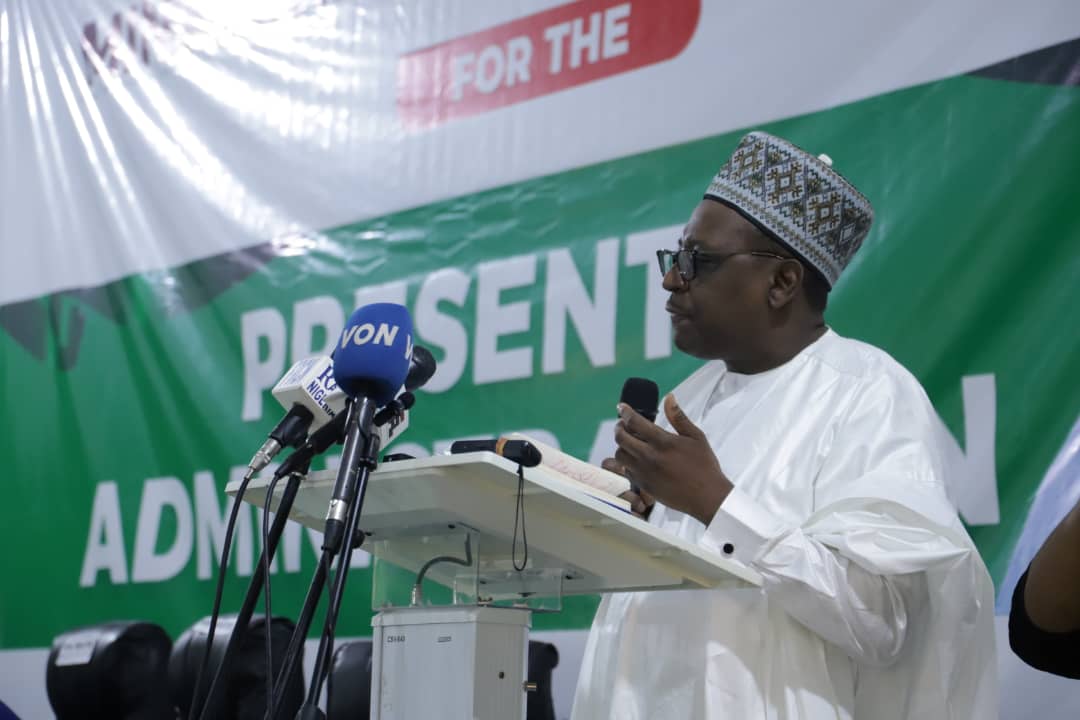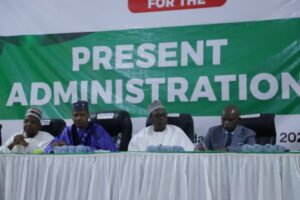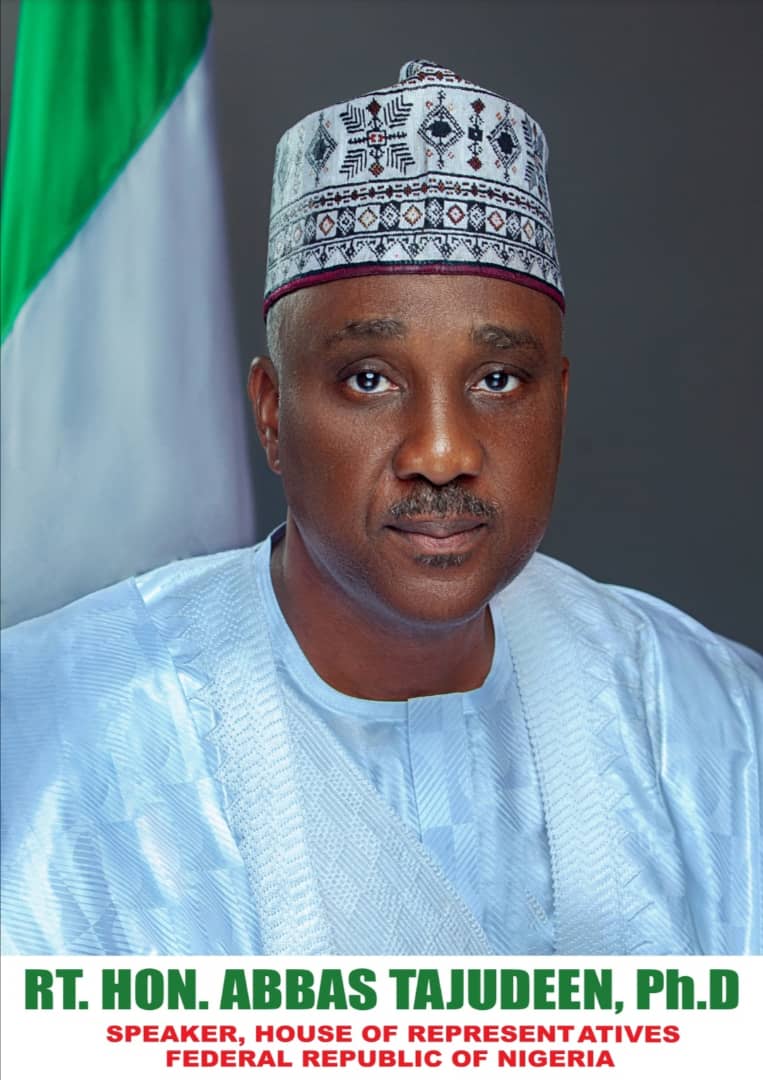
By Fatima Saka
Coordinating Minister of Health and Social Welfare, Professor Muhammad Ali Pate has given an account of expenditures of $3 billion pledged by partners to President Tinubu on his zeal to build human capital, improve health and well-being of Nigerians and in assurance to drive future prosperity of the country.
The Coordinating Minister gave the expenditures of the pledged at the Ministerial Sectoral Update of the current administration on Friday in Abuja. On behalf of the Minister of State for Health, the Permanent Secretary,along with the Director Generals, CEOs of agencies and regulatory bodies,and the CMDs of our hospitals.

Professor Pate said that from the moment the health agenda was announced the ministry has been actively implementing plans, adding that over several months, the ministry have made considerable progress implementing the four pillars, “which I will report on regarding our accomplishments, not just our future aspirations, to build human capital, improve health and well-being of our people to drive future prosperity in our country.”
Governance of Health Sector
According to Prof Pate, improving governance is climacteric for advancing the health and welfare sector, and that it required collaboration between the federal government, states, development
partners, private sector and civil society.
He ascertain that the ministry signed a strategic compact with all the 36 States of the Federation and FCT, endorsed by Mr. President, during the unveiling of the Health Sector Renewal Investment Initiative (SWAp) in December 2023. “For the first time, our development partners signed a Compact governing our joint operations with them.
“This also included the private sector and civil society. At that event, our partners pledged $3 billion, reflecting their confidence in Mr. President’s agenda. Of this pledge we have signed $932 million grant with GFATM, $200 million with a philanthropic foundation and expecting additional $60 million in grants, $150 million announced by the Gavi Alliance, in addition to US$1 billion facility governed by MOU signed with Afreximbank to unlock the healthcare value chains. Additional resources are being mobilized.
“”We have begun to strengthen the regulatory framework within the sector.
“There are 16 professional regulatory bodies and other regulators of pharmaceuticals, such as NAFDAC, pharmaceutical council, medical laboratories, medical and dental council, nursing and midwifery council, and other aspects of the ministry’s stewardship role that we have repositioned and reinvigorated their leadership.
“We have also engaged constructively with health professional associations and unions to foster a healthy work environment. We have embarked on an ambitious digital transformation agenda to be on the path of electronic records, quality data for decision making and stronger data governance.
“Additionally, we have set up a committee on standards for tertiary healthcare, which has been absent for eight years. This committee is tasked with defining the standards for tertiary facilities, in line with the National Health Act. The details of these standards are now accessible online.
“We have also engaged multiple times with civil society, traditional leaders, religious leaders,and the media across the country, as a way to improve our orientation towards service to the Nigerian people, not narrow interests.”
Population Health Outcomes
Speaking on the population health outcomes,the minister said that the federal government, along with other sectors, is working to improve the population health outcomes of Nigerians. The Ministry of Health oversees various healthcare facilities and agencies to achieve this goal. “Efforts are being made to revive and expand primary health care centers across the nation to provide essential services and referrals to secondary facilities. The states need to support the federal government’s ambitious plan for revitalizing primary health care.
“Funding of 260 billion Naira is available at the state level for the revitalization of primary health care centers through IDA financing and the BHCPF. Guidelines are being provided to assist states in implementing the revitalization projects and ensuring that resources are used effectively. The success of the revitalization efforts depends on the mobilization and deployment of funds to improve healthcare services for Nigerians.”
Unlocking the Healthcare Value Chain
Prof Pate reiterated that the President has approved the Presidential Initiative to Unlock the Healthcare Value Chain, emphasizing the importance of domesticating production capabilities to create jobs for the youth.
“A draft Executive Order has been finalized to reduce barriers related to importing raw materials and equipment for pharmaceuticals and medical devices. This policy change aims to enable Nigerians to produce essential items domestically, such as syringes, needles, generic pharmaceuticals, test kits, and long-lasting insecticide-treated nets for malaria.
“The goal is to shift the production of bed nets, currently manufactured abroad, to local production in Nigeria to promote self-sufficiency and economic growth. One of the world’s largest treated bed nets manufacturers is considering establishing a manufacturing plant in Nigeria to produce for Africa.
“The focus is on policy changes to facilitate the healthcare value chain and promote local production of essential healthcare items..”
Agenda Focuses on Health Security
Minister underscores the NCDC, while commenting on the fourth pillar,
He said with the new Director-General of the Center for Disease Control (NCDC) playing a crucial role.
“The NCDC has successfully prevented diseases from spreading, such as containing the Lassa outbreak and responding rapidly to meningitis with the pentavalent meningitis vaccine.
“Additional resources have been approved by the President for the NCDC to have contingent financing for prompt action during health crises. The One Health Steering Committee, consisting of health, environment, agriculture, and water ministries, is coordinating efforts to prevent outbreaks, with Nigeria applying for increased financing from the Pandemic Fund.
“Malaria is a significant issue in Nigeria, prompting a major effort to reassess the approach to malaria for faster progress towards elimination. This includes improving case management, providing affordable medicines, optimizing tool delivery, introducing vaccines carefully, engaging communities, and enhancing data systems.
“Research and knowledge-building are vital, leading to the establishment of NHRC and NHREC to strengthen ethics and governance in research and clinical trials, ensuring that research is both intelligent and ethical, protecting public interests, and meeting proper standards.
“At the regional level, the Africa CDC has set up its regional headquarters for the Africa Center for Disease Control in Abuja, with the President offering a building for this purpose. A Memorandum of Understanding (MOU) has been signed to formalize this arrangement, showcasing the presence of the ACDC in Abuja,” according to the Minister.





